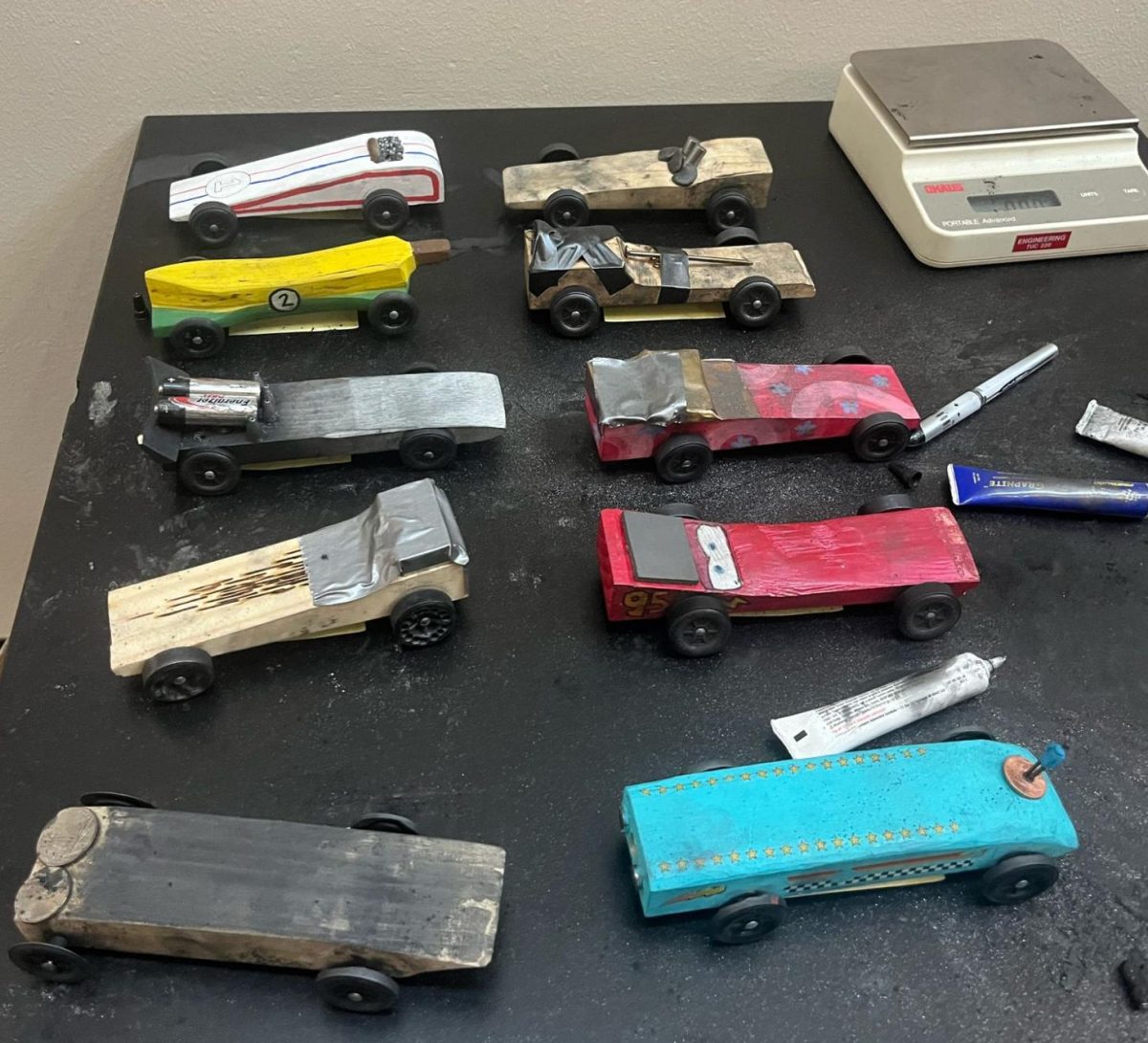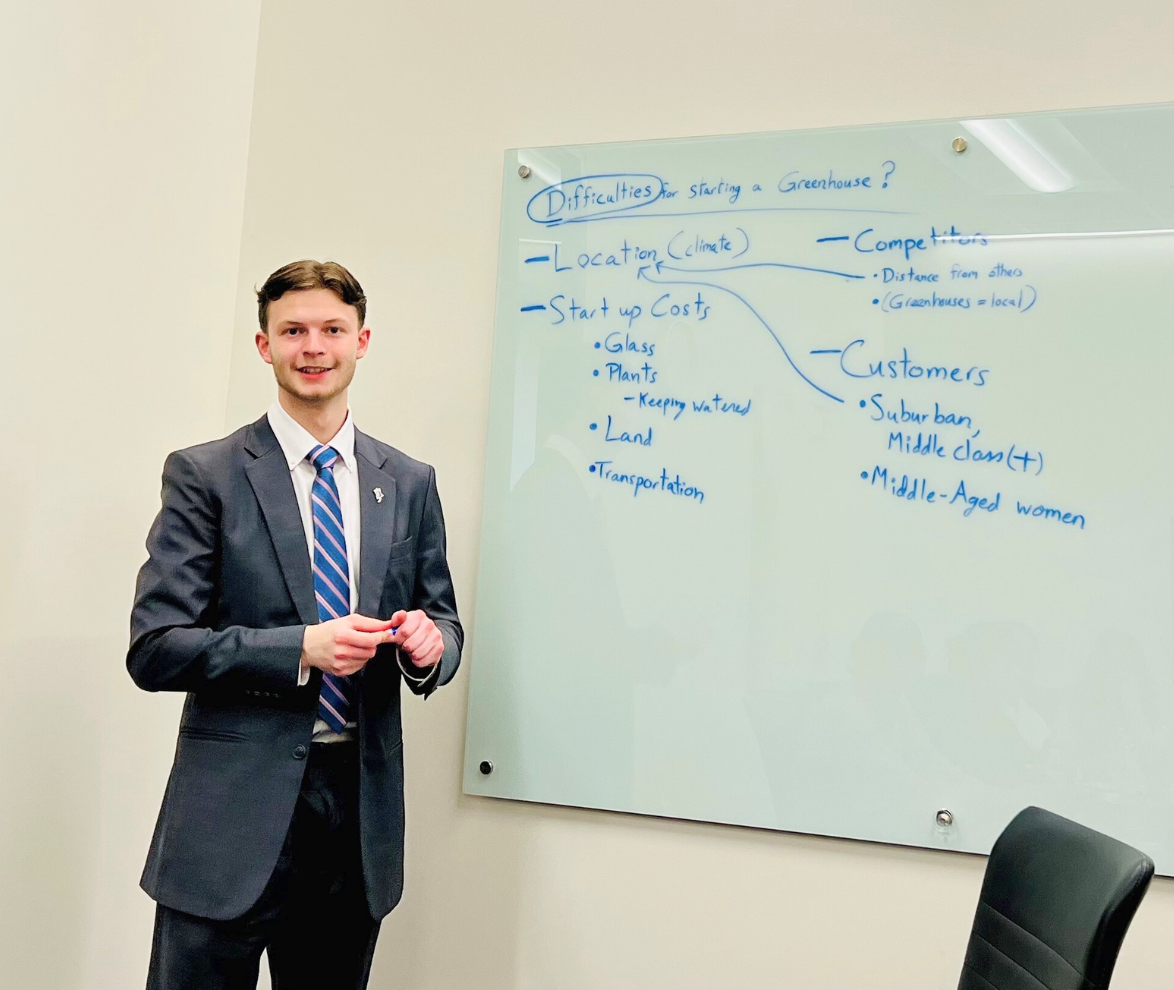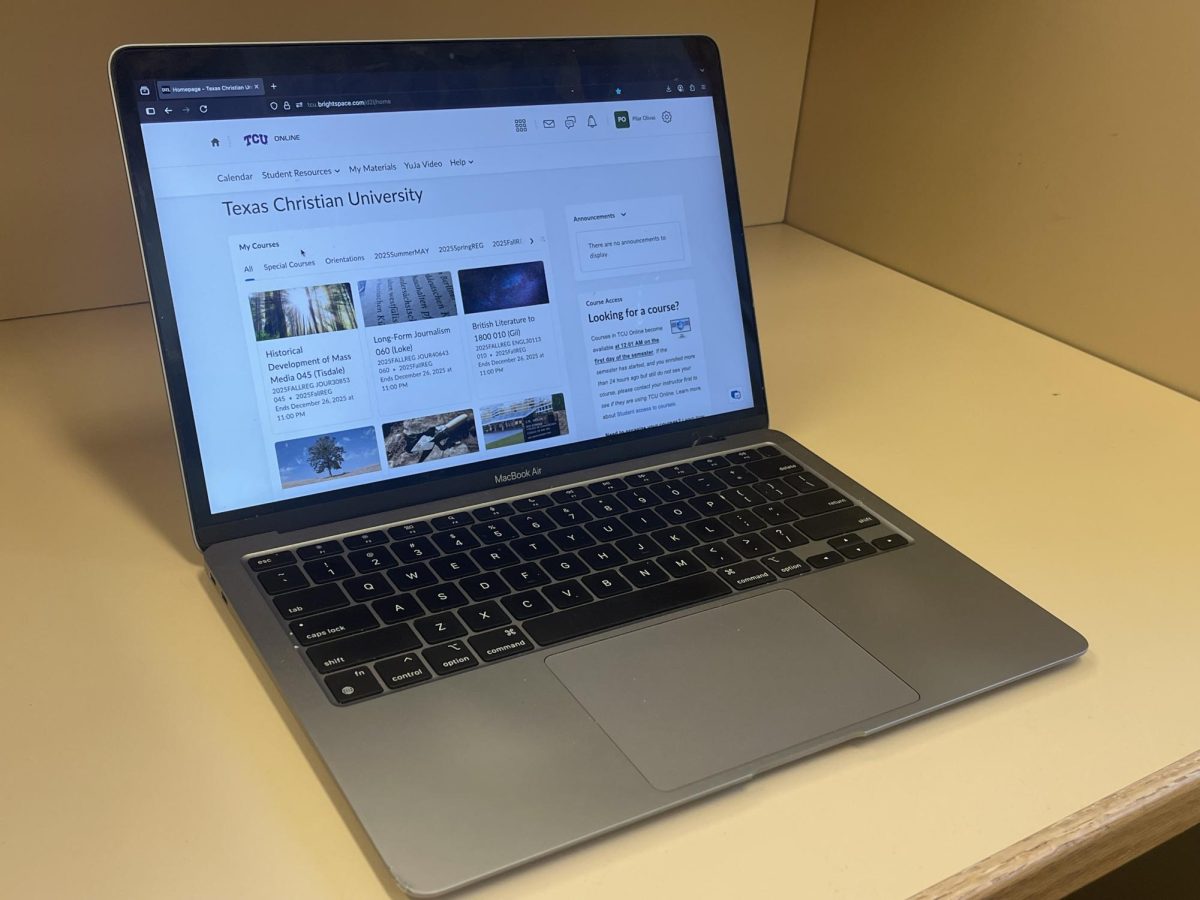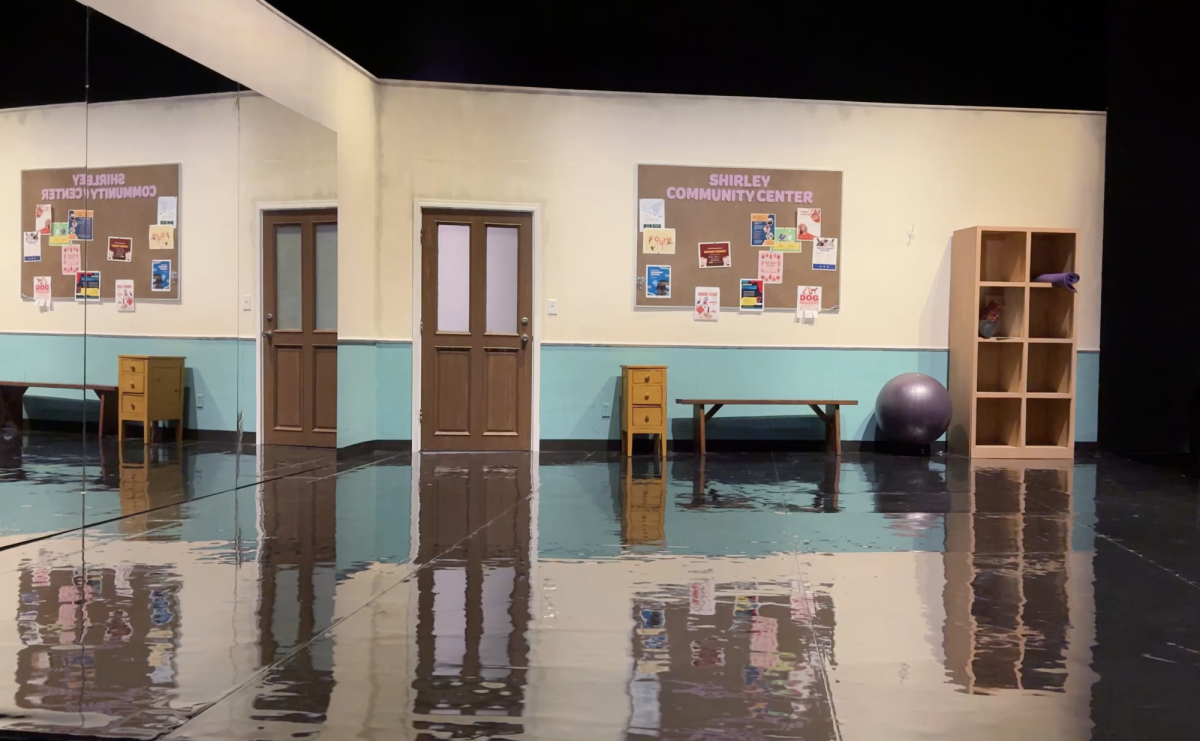For most college students, assignments often mean long nights of reading, writing and problem-solving, but some engineering students learned their lessons through a high-speed thrill.
TCU Assistant Professor of Professional Practice William Rose gave his Issues in Engineering class a simple assignment: build the fastest car within specific guidelines and race against classmates, or called “Pi Day Pinewood Derby” exercise.
“I was looking for an assignment that would be fun and also support team building and leadership activities,” Rose said. “This project provided a competitive environment but also allowed students to demonstrate their individuality while having fun.”
Student perspective
Alessandra Senis, a junior mechanical engineering student in the class, experienced this firsthand. She and her teammates had fun designing and building their car, which required both technical skills and creativity.
“The process was super fun,” Senis said. “My teammates and I got together to cut and shape the car based on a design we thought would make it faster. We used a saw to cut the wood, and after deciding on the design of McQueen, I painted the car at home.”
A look at the competition
According to Rose, incorporating hands-on activities makes learning more meaningful.
“In my life, I have learned more from hands-on experiences than intellectual pursuits alone,” he said. “The ability to let students be creative provides a certain amount of freedom, which is why I believe most students enjoy this exercise.”
Creative the students were, this year’s race featured a banana-shaped car, a Barbie car and even Lightning McQueen inspired by the movie Cars.
“Everyone was really excited to see Banana Car and McQueen race,” Senis said.\
In previous years, students have built everything from cartoon-themed racers to variations of the Horned Frog, TCU’s beloved mascot.
The final race came down to McQueen, Banana Car and a sleek white car. In the end, Banana Car was crowned the champion.
The power of hands-on learning
Beyond the fun, the assignment serves a bigger purpose.
“The Issues in Engineering class is about providing students with the ability to lead, work, and manage successfully,” Rose said. “The more experience they gain now, the better prepared they will be to achieve their goals in their chosen careers.”










